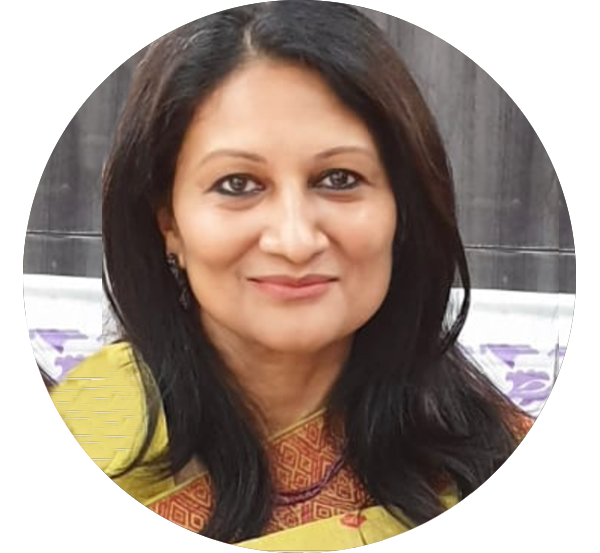Associate Professor, Cotton University, Guwahati, Assam
The impact of cultural tradition, norms, and mores of indigenous tribes of the Northeast region on the status of women in these communities has been glorified since the colonial period. Women from Assam, the most populace state of the region are believed to enjoy a status better than women in most other regions of India. In recent years, the peace activism of women in the North East has solidified this view. It is also significant to note that Assam is home to the Kamakhya shrine, a temple dedicated to feminine fertility. In this exceptionally hospitable terrain for women, patriarchy operates in insidious ways. This is revealed most starkly by the absence of women’s voice in representative bodies, in the multiple peace processes, and in leadership positions in governance structures.
Hailing from this region and teaching here for over two and half decades, Rakhee Kalita Moral’s interest in gender justice research and praxis started in 2009 when she came across women combatants of the erstwhile rebel groups of Assam. At the time she was conducting fieldwork on post-conflict social change in Assam. Rejected both by the state and the society, these women faced numerous challenges. Rakhee wrote about them in journals and books with a view to breaking the silence around their plight. “Literature is a very powerful medium, and I must confess the writings of men and women urging for equal lives, and for autonomy, always stay within me as voices I hear”, says Rakhee. Bringing out the stories of the silent and the silenced drives Rakhee. She has foregrounded women combatants of Assamese armed groups, women of Nagaland, and those from the Upper Hills of Assam in her research.
Academic work that is devoid of contemporary social relevance does not appeal to Rakhee — her own research is almost always tied to action. Rakhee is now collaborating with her colleagues at the Cotton University’s Internal Quality Assurance Committee and the Academic Council to design gender courses that are socially relevant. These will be offered by the newly established Centre for Women’s Studies that Rakhee has helped conceptualize. She is also helping the Centre become a vibrant space that can assist the university community in question inegalitarian gender norms and engage in research that speaks to the socio-cultural landscape of the North East. The Centre itself exudes a collaborative and inclusive spirit in its decision-making, multi-disciplinarity, and facility design. Befitting examples of this spirit are a short film that the students of Cotton University have made on perspectives on feminism and a series of lectures on ‘Gendered Sites, Everyday lives’ that the Centre is hosting.

Rakhee Kalita Moral is Associate Professor and has taught English and American literature at Cotton University, Guwahati, Assam, for over two decades. She is a recipient of the Nehru fellowship of Nehru Memorial Museum and Library.
She has authored several papers and monographs including Arms and the Woman: Gender, Insurgency, and the Myth of Power in Assam. She is Editor of Gender and Society in North East India (2010) and At the Frontier and Beyond (2005). Dr. Moral is associated with the South Asia Platform of the Humanities Across Borders IIAS-Mellon Program, University of Leiden. She is involved with a project on Women’s Movements and Resistance in Northeast India that involves educators, writers and legal and civil society experts from Asia and Africa.
